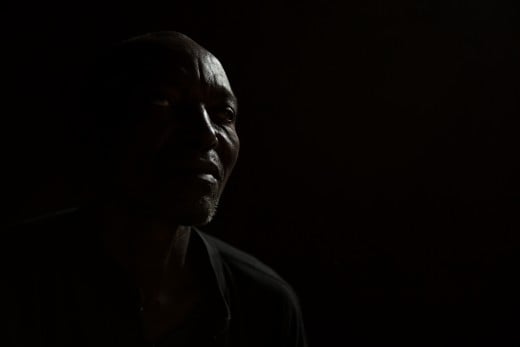Christian Counseling: The Biblical Theology of Helping

Life is Getting Messy
People today are in a hurry to secure all the comforts that money can bring. Modern amenities and the latest technology are some incentives that drive people to race against time. However, when they realize that they are too stressed to enjoy the simple things in life, they would like to slow down and start living again. However, most of them think it is too late, and they have reached a point of no return. Many of them are victims of stress-related diseases like ulcer and high blood pressure. They live their hectic lives trampling on their fellow human beings in their race for success in life. However, most people realize that they need something different from what they regularly experience. This the context where Christian counseling becomes significant.
An individual is not just one person, but it includes diverse factors ranging from one’s kith and kin to the entire social system in which one is born and brought up
Happiness is Hard to Find?
Many human beings, appearing to be gentle souls in public, perpetrate unimaginable abuses hidden from public scrutiny. Fathers misuse even daughters, mostly with the connivance of women. The wealthiest people are worried about losing their wealth which is likely in case of economic failures. On the other end, a sizeable portion of world citizens lives a life of poverty, violence, and death without access even to basic technology. The rich-poor divide is widening. While the rich get to squander all the natural resources, the poor get a tiny fraction of their fair share. With all the development of science and technology, a sizeable portion of the world population does not have access to clean water and are very much worse off than pet animals of the rich.
No one is immune to pain and suffering. An individual is the miniature of the society, and therefore anything that affects a person has a long-term impact on the community as a whole. Worldly pleasures and abuses only numb the pain temporarily. No one is happy with his possessions. The urge to possess more appears to be insatiable. True happiness seems elusive. This is the reason why many youths become disillusioned and pessimistic and develop violent and destructive tendencies. Many others turn to ‘godmen’ who offer magical formulae for solving all problems. They finally realize their folly and fall into more profound misery.

Why Christian Counseling
Clients have the right to choose counseling which is in congruence with their value systems and beliefs. The rise of spirituality has somewhat diminished the differences between different worldviews of counseling. However, mental health professionals and Christian clients still largely disagree on the belief and value systems that should form part of the counseling process.
People should show consideration to their fellow creatures (not only humans). The right of every living organism to get a fair share of the natural resources is absolute, and the concentration of purchasing power in some sections of the society should not upset this balance. The fundamental principle stressed by every religion is equality of all and universal brotherhood. No religion advocates cheating or causing pain to fellow human beings. As long as the client’s primary belief systems are sound, there is no need to burden him with other ideologies. There are many examples of people who have been of immense service to humanity, but who were too preoccupied to go to church, temple or mosque. In the light of the above, modern counseling should be based on universal value systems and principles and should help reinforce the positive aspects of the personality. It is possible only if the Church redefines its stance on individuals' moral and social development.

Hawkin's Opinion on Christian Counseling
Christian counseling is rooted in theology. Holy Father, Jesus Christ, Holy Spirit, Church, sin, salvation, angels, future and human beings are all part of the Christian belief system, and Christian counseling should contain all these components. Conflicting ideologies are truths which tend to confuse counselors as well as clients. According to Hawkin (2001), “good theology helps filter out the theological and philosophical error that pervades so much of our world today” (p.97).
Theological methods which are sensitive to the context and centered in the needs of the people are essential. Counseling should be rooted in divine wisdom. The counselor’s words are considered authentic “only to the extent that it is a faithful exposition of the truth received in the special revelation found in the scripture” (Hawkin, 2001, p.102). The counseling should model on the requirements of passion, compassion, flexibility, and practicality.
A Christian counselor should address the issue that is at the core of humanity’s dilemma. The prescription advised for a cure is the return to god. Modern thinking denies the existence of absolute truth and proposes that truth and reality are social constructs. The counselor should draw from the authority of scriptures and a self-revealing God.
Counselors speak of the existence of an infinite and personal God. God is always available to those who seek Him sincerely with passion. God is, “in all circumstances, too loving to be unkind and too wise to make a mistake” (Hawkin, 2001, p.106). Many times, when we pass through stressful situations and painful experiences, we may start doubting God. If we believe that all experiences are ultimately for good, it gives us the strength to endure them and emerge unscathed. Christians think that the wandering desire of man makes him fallen and susceptive to bad influences and wrong deeds. But since man is made by God in his image and vested with dignity, god always tries to bring him back to the path of good. Pain and suffering are designed by God only to bring humans to the right path.

Thinking beyond the 'individual' is necessary to carry out counseling and therapy effectively when it comes to Christian perspectives of family assistance
To Remember
The Christian belief is that Jesus Christ was sent to take the burden of human sins. There is also a promise that God will send his emissary whenever a correction is needed. There is a parallel in the Bhagavad Gita, the holy book of the Hindus. It maintains that God will descend to earth as a human avatar to destroy evil and establish dharma. The promise of a bright future is what helps humans endure pain and suffering. The critical aspect of every religious belief is the promise of a happy future which can be obtained by following the path of righteousness. Though believers of different faiths may have a difference of opinion over the right path to God, the teachers of religion should have the basic understanding that any religion or faith which requires a man to follow the righteous path, show love and compassion to fellow creatures.
On the contrary, one should condemn and reject any ideology which requires believers to take up arms against people who profess to other religions or ideologies. The power of faith can move masses, and it is disheartening to see many groups with vested interests misdirect this power towards propagating hate, distrust, violence, and destruction. Every act of kindness and love brings forth the omnipresent God. Counselors should develop a genuine understanding of other ideologies and accept absolute truths irrespective of from where it comes.

References
Hawkins, R. E. (2001). Theological Roots: Synthesizing and Systematizing a Biblical Theology of Helping. Faculty Publications and Presentations.








